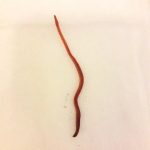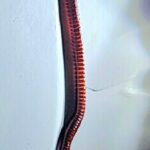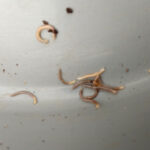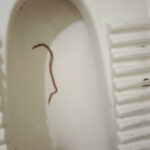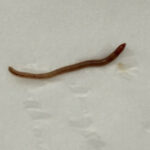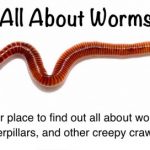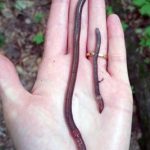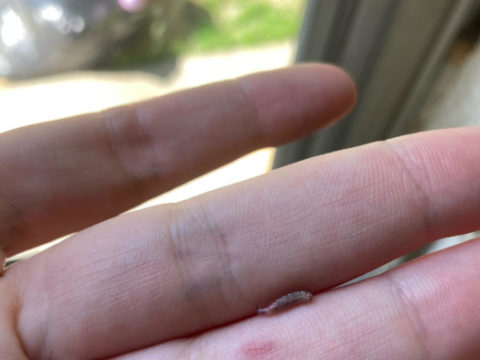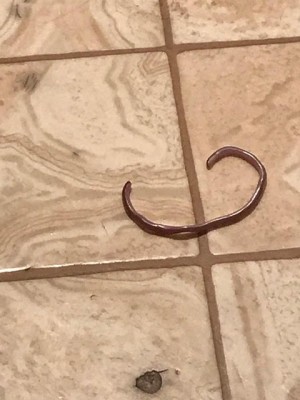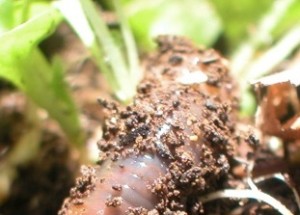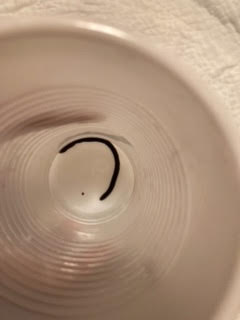
“Thin black worms, the size of red wigglers, are coming in from outside under the door,” writes this reader about the critter pictured below. “It’s been raining heavily during the night in Hendersonville, North Carolina. I do not see any legs. I live in a long term care facility and don’t want to see them harmed. Thanks for your help.” Firstly, we want to thank our reader for the very helpful context, which in this case is especially helpful since the photo is pretty blurry. Knowing that it does not have legs rules out a lot of possible identifications and helps narrow down the possibilities. Secondly, we commend our reader for not wanting to see the worms harmed. We know, and understand, that a lot of people’s first instinct when they find worm-like critters in their home is to kill them, even if they are harmless.
Now, there are two distinct, possible identities that come to mind when we see this worm. First, we think of blackworms. They are annelids, just like red wigglers and earthworms. They are aquatic worms, and tend to thrive in freshwater habitats. That begs the question, how would a blackworm end up in someone’s home? Well, the answer to that lies in the context our reader provided: the heavy rains. It can happen that when heavy rains occur, and thus flooding of lakes and ponds occur, the wildlife inside them are flushed out, and end up getting washed up against people’s homes. They are not harmful worms, so our reader needs not worry about that. We recommend just scooping them up on a dustpan and returning them to the nearest body of water.
That said, if there are no bodies of water nearby, making the possibility of these being blackworms much lower, then we would say these are likely some species of earthworm. These critters also tend to appear after heavy rains. The reason for this is because earthworms live underground in burrows, and when it rains, their burrows get filled with water; since earthworms are not aquatic like blackworms, they need to come to the surface to breathe. Then, just like we theorized for the blackworms, the earthworms would have washed up against our reader’s house with the rain. Alternatively, they might have purposefully wormed their way to the home in search of shelter from the weather conditions.
In conclusion, we are not entirely sure what the black worms are that our reader found, though we would guess that they are either blackworms or earthworms, based on the photo and context provided. We hope this helps, and we wish our reader the very best!
All About Worms is always free, always reader-supported. Your tips via CashApp, Venmo, or Paypal are appreciated! Receipts will come from ISIPP Publishing.
You might also find these guys interesting!




